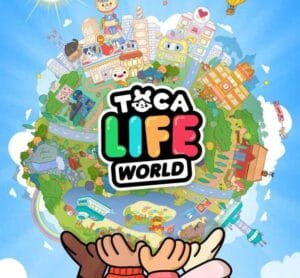New Scandal Hits GTA 6 Development: Rockstar Games Under Fire for Alleged “Union-Busting” Staff Dismissals
Popular Now
 Fall Guys
Fall Guys
 EA SPORT FC 25
EA SPORT FC 25
 Candy Crush Saga
Candy Crush Saga
 Warframe
Warframe
 Black Myth: Wukong
Black Myth: Wukong
 Gacha Club
Gacha Club
 Rust
Rust
 God of War Ragnarök
God of War Ragnarök
 Among Us
Among Us
 Sonic the Hedgehog™ Classic
Sonic the Hedgehog™ Classic 
The hotly anticipated launch of Grand Theft Auto VI is now overshadowed by a major corporate controversy, as developer Rockstar Games faces accusations of ‘ruthless’ union-busting following the abrupt dismissal of a significant number of employees in its UK and Canadian offices. The firings, which involve personnel reportedly tied to unionizing efforts, have ignited a fierce debate about worker rights in the video game industry, placing a spotlight on the labor practices of one of the world’s most high-profit video game developers.
Reports emerged late last week detailing the termination of between 30 and 40 staff members at Rockstar Games. According to the Independent Workers’ Union of Great Britain (IWGB), the dismissals were a direct act of retaliation against employees who were organizing or involved in union activities. This explosive claim frames the incident as a deliberate move to suppress collective action as the studio enters the crucial final stages of GTA 6 development.
The timing is particularly critical, coming just months before the projected May 2026 release of Grand Theft Auto VI, a title expected to shatter global sales and revenue records for parent company Take-Two Interactive. The intersection of immense corporate valuation and alleged labor violations presents a compelling, and disturbing, narrative for both industry analysts and the vast Grand Theft Auto community.
The gaming industry’s history is frequently marred by reports of excessive ‘crunch’ periods, unstable job security, and demands for extreme overtime—issues central to the game development labor debate. This recent action by Rockstar Games, despite the studio’s public efforts in recent years to mitigate notorious crunch culture, suggests deep-seated tensions remain.
The Core Allegations: Union Busting vs. Gross Misconduct
The opposing narratives surrounding the terminations are starkly different, creating a complex legal and ethical challenge. The IWGB, a union that has been increasingly active in advocating for UK game workers rights, has been unequivocal in its condemnation.
- IWGB Stance: The union asserts that the terminated employees were all either union members or actively involved in a private Discord channel dedicated to trade union activity and organization. IWGB President Alex Marshall labeled the event as “the most blatant and ruthless act of union busting in the history of the UK games industry,” arguing it demonstrates a “flagrant contempt for the law and for the lives of the workers who bring in their billions.” The union has vowed to legally fight for the reinstatement of every member.
- Take-Two Interactive Response: In contrast, Alan Lewis, a spokesperson for Rockstar’s parent company, Take-Two Interactive, firmly denies the union-busting allegations. Take-Two maintains that the individuals were dismissed solely due to “gross misconduct” and for “no other reason.” The company has refused to provide specific details regarding the nature of the alleged misconduct or the exact number of employees affected, leading to widespread speculation across the gaming news sector.
 The coincidence that all or nearly all of the dismissed staff were connected to the organizing efforts is difficult for many observers to overlook. Analysts suggest that Take-Two’s “gross misconduct” defense will require substantial evidence to be credible, especially given the context of global tech layoffs and rising developer activism.
The coincidence that all or nearly all of the dismissed staff were connected to the organizing efforts is difficult for many observers to overlook. Analysts suggest that Take-Two’s “gross misconduct” defense will require substantial evidence to be credible, especially given the context of global tech layoffs and rising developer activism.
Impact on GTA 6 Development and Investor Confidence
While the internal turmoil is significant, the immediate concern for the gaming market and Take-Two investors is the potential impact on the highly critical final phase of Grand Theft Auto VI development. The affected employees reportedly included roles across quality assurance (QA) and support, functions that are absolutely crucial in bug detection, optimization, and polish as a AAA title nears release.
The Potential Ramifications:
- Quality Assurance Risk: The loss of experienced QA staff, who possess deep institutional knowledge of the game’s evolving code, could introduce new vulnerabilities. Any major issues or technical setbacks could lead to further delays for the GTA 6 release date or result in a less polished launch product, potentially damaging the franchise’s reputation. This scenario represents a substantial AAA game development risk.
- Developer Morale: The public nature of the firings, coupled with the union-busting accusations, is likely to severely impact Rockstar Games developer morale. Low morale and a climate of fear can directly impede productivity and creativity, essential components for the successful delivery of a title of this magnitude.
- Investor Scrutiny: The controversy may lead to increased investor scrutiny over the company’s internal management practices. While the stock market often prioritizes timely delivery, a major controversy can affect the long-term perception of the company’s stability and ethical standards, especially in a sector increasingly concerned with ESG factors (Environmental, Social, and Governance).
This development adds another layer to the narrative of Rockstar Games’ internal culture. The studio previously mandated a full-time return to the office earlier in the year, citing security concerns following the massive GTA 6 leak of 2022 and the need to finalize the game’s development. This move was met with significant developer pushback, leading to criticism from the IWGB about potential returns to toxic crunch culture.
The Broader Context of Labor in the Game Development Sector
The situation at Rockstar is not isolated; it is a flashpoint in a continuing, industry-wide struggle for improved working conditions and job security in gaming. Video game industry layoffs have become tragically common in recent years, with thousands of developers losing their jobs despite the sector’s exponential growth and high revenue streams.
The pursuit of unionization—a bid for collective bargaining power, better pay, and protection against overwork—is gaining traction globally. The allegations against Rockstar highlight the intensity of the pushback that organizing efforts can face from major studios and publishers, even those with deep pockets and a critical dependence on their skilled workforce.
 The Legal and Ethical Crossroads
The Legal and Ethical Crossroads
The legal battle promised by the IWGB will be a landmark case. In the UK, employment law provides significant protections against dismissals based on trade union activity. Should the union be able to substantiate its claims, the repercussions for Rockstar Games could extend beyond financial penalties to severe reputational damage. The perception of a company allegedly prioritizing the stifling of worker organizing over the well-being of its team—while profiting immensely from their labor—will undoubtedly fuel the global conversation about ethical game development.
The stakes are incredibly high. For the workers, their livelihoods and the future of labor rights in a multi-billion-dollar industry hang in the balance. For Rockstar and Take-Two, their long-term ability to attract and retain the top game development talent needed for future projects, including titles beyond Grand Theft Auto VI, is at risk.
The GTA 6 development story has always been dramatic, but the latest chapter moves it from the realm of creative anticipation into a serious corporate and labor dispute that will be closely watched by the entire world. The community, eager for news about the next open-world masterpiece, is now also forced to confront the often-harsh realities behind the creation of their favorite AAA games.
Stay tuned for continuous updates as the Independent Workers’ Union of Great Britain and Take-Two Interactive prepare for a legal and public showdown that will have major implications for the future of video game industry employment.









 The Legal and Ethical Crossroads
The Legal and Ethical Crossroads